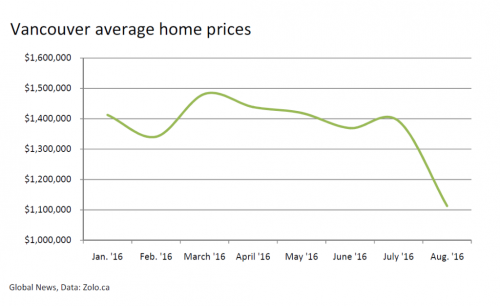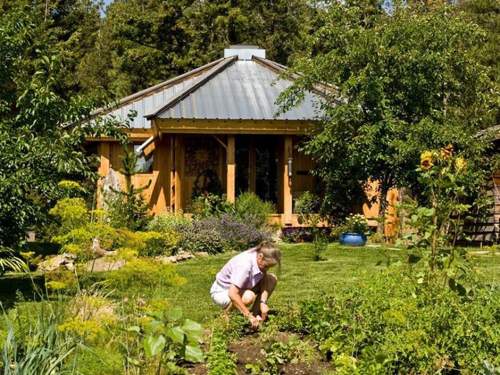Vancouver’s real estate market has attracted angry commentary from a wide variety of sources lately, and not just citizen activist groups rallying for affordable housing.
A couple of weeks ago, U.S. economist Michael Hudson sold out the Rio Theatre to talk about the city’s gone-sideways housing situation, which he compared to “a feudal society.”
Mother Jones magazine has a feature story about Vancouver in its current issue, Hedge City Blues: What happens when global elites invade your town?, which cautions that Seattle is next.
This week, local filmmaker Charles Wilkinson is releasing his film on Vancouver’s crisis, No Fixed Address, which opens May 2 at Toronto’s Hot Docs festival. The film will also screen at Vancouver’s DOXA Documentary Film Festival on May 6.
And in an unusual twist, a member of the region’s development community is incensed enough that he too is weighing in on our spectacular failure to regulate big foreign money.
Consultant Richard Wozny has been a key player in Vancouver’s development industry for 33 years and he just wrote a report: Low Incomes and High House Prices in Metro Vancouver. Mr. Wozny has, as he puts it, worked endlessly to make wealthy developers wealthier. Now nearing retirement, he says he wants “to give something back to society – a little knowledge the public should find useful.”
Mr. Wozny, whose company, Site Economics, has done the financial analysis and strategy for more than $120-billion worth of large-scale residential towers, shopping malls, suburban subdivisions and industrial parks, says he’s analyzed the financial feasibility of projects for all the major developers in Western Canada and the three levels of government.
He’s seen unprecedented financial windfalls in the Lower Mainland’s real estate market. Now Mr. Wozny wants to speak out on behalf of the losers: those residents who rely on their incomes to afford them a place in the property market, be it owning or renting.
He’s studied the situation and has come to several conclusions: that more supply is nothing but fuel for the unaffordability crisis; that house values that are wildly disproportionate to incomes indicate a high level of tax evasion; that government is failing to institute fair tax regulation to ensure infrastructure needs are met; and that all this “growth” is simply not paying for itself.
The result is that a basic necessity – housing – has become a low-risk profit-making tool.
“What would we think of someone who hoarded food? Why is real estate any different?” asks Mr. Wozny. Analyzing data from the Real Estate Board of Greater Vancouver and the Canada Revenue Agency, he found an odd inverse relationship between incomes and housing; the higher the house price, the lower the declared income; the lower the house price, the higher the income. In Vancouver, Richmond, West Vancouver and Burnaby, houses are routinely priced between $1.5-million and $3-million. However, taxpayers report “unusually low taxable median family incomes, well below the regional average.”
Richmond and Vancouver, says his report, are among the highest income-to-house price ratios in the world.
Meanwhile, in Port Moody, Coquitlam, Port Coquitlam, Langley and Maple Ridge, house prices are well below the regional average and reported incomes well above.
If tax returns are a guide, the suburbs are now the high-income earning areas of the region shouldering the greatest tax burden. Those closest to the central core appear to be scraping by with little income, despite their high-cost housing.
The only conclusion to reach is that incomes are not being reported, says Mr. Wozny. A segment of the population is effectively subsidizing a group that refuses to pay its taxes.
He makes the case that a home’s value is due almost entirely to its location within the city. It may provide shelter, but it is the roads and sidewalks, proximity to schools and amenities that determines its worth. The city, and public infrastructure, creates its value. But what of the buyers who capitalize on that value without putting anything back in?
“Over the past 30 years, private residential real estate has become more of an economic ‘free rider,’ enjoying speculative, low-risk increases in value generated by public investment, but avoiding making adequate contributions to the public realm which supports it,” he writes.
Because the majority of our infrastructure was built before 1990, we are continually drawing on that value with massive new developments. Government should be tapping the “vast fortunes being made in real estate” to ensure equal access to public infrastructure,” he says, echoing Mr. Hudson’s argument for far heftier taxes on speculative buying.
“The growth has not paid for itself. Much of the infrastructure is relatively dated and paid for by a generation that was far more generous, and we are drawing down on that, compromising the quality of life without growing the infrastructure. We are creating congestion, whether it’s traffic, or at the hospitals or universities, whatever. There is plenty of money in private growth, so the growth should at least pay for itself. Why should government and the people in the middle foot the bill?
“Somebody doesn’t spend $4-million on your house alone. It’s the region they are buying, not the house. It’s the community that makes it special. It wouldn’t be worth anything if the community were to decay. That’s what we don’t understand.
“Obviously something terrible is happening – the money flooding in is not a sign of a healthy functioning capitalist market.
“The only group at fault are politicians who want growth without having to pay the requisite cost.”
Another group might also be at fault: the general population.
Mr. Wilkinson, whose film will screen in Vancouver at Simon Fraser University on May 6, says a challenge he faced during the filmmaking was the general apathy of average people. He edited down discussion about big inflows of foreign money and corruption because the topic got the thumbs down from a mixed-demographic group he uses for feedback.
“Audiences don’t relate to it, they don’t get it,” says Mr. Wilkinson. “We had a bunch of stuff about corruption and money laundering and people kept saying, ‘I don’t get it. How does money laundering work?’
“Where we struggle with it is that people will often say, ‘So what? That’s just free money into our system, and money is good, right? Who cares if [buyers] are from another country or whoever comes here with $1-billion. It trickles down, right?’
“But they can’t get it in without breaking the law, which affects you,” Mr. Wilkinson says. “And there are people who say, ‘I don’t care if my community is disintegrating. I want to retire in Hawaii with an RV.’ I get that there are people like that and they are making a conscious choice.
“That’s the key focus of the show, for me, is the sense of community that I’ve always felt in Vancouver, and I see it’s under such assault.
“It’s been very frustrating.”
Instead of steering the viewer toward any conclusion, Mr. Wilkinson presents the facts of Vancouver’s affordability crisis in such a way that people can make up their own minds, according to their values. He includes interviews with David Suzuki, Bob Rennie, Raymond Wong, Seth Klein and Sandy Garossino, who is quoted saying: “We manufacture and export condominiums.”
Mr. Wilkinson became something of a media magnet when promoting the film in Toronto recently, because Toronto has entered the speculative frenzy that Vancouver has endured for years.
Toronto, he says, is even more vulnerable than Vancouver, because of its rich history of diverse ethnic communities. They will be crushed under the weight of gentrification, much the way Vancouver is losing its Chinatown.
B.C.’s economy, says Mr. Wilkinson, relies on the selling off of real estate instead of actual jobs, as a result of government inaction.
“It’s reached the point where we don’t have much to sell, other than the land itself. So when the Premier crows about how she’s created all these jobs, in a bizarre and macabre way, she has – by failing to impose any restriction on the real estate market. And of course it’s unsustainable, because there are no jobs anywhere else. When you drive past all these communities in northern B.C., everything is boarded up. Resources are simply gone.
“Jobs here are building speculative housing units.”
He wonders where this selling off of real estate to the highest bidder will eventually get us. Every time a home is sold for millions of dollars to a speculator, that home is likely forever lost to the local income-earner.
“Let’s assume everybody sells out and gets rich. What’s the plan – to build another city? But where am I going to go? This is my home,” Mr. Wilkinson says.
“I don’t feel the government really cares much about my interests, or anybody else I know, so everybody devolves into, ‘every man for himself.’ And that’s the antithesis of community.
“We’re Canadian. We weren’t supposed to be like this.”
– from ‘Housing talk gets louder and angrier in Vancouver’, Kerry Gold, G&M, 28 Apr 2017 [Whole article copied here, for the record. Hat-tip to The Auteur]
Strong feelings about RE are becoming more and more mainstream.
The ‘Anger’ factor is noteworthy. Extreme wealth inequality breeds anger. This is very, very bad for a society.
The mention of the ‘general population’ as a causative factor is good.
And don’t forget the banks allowing leverage with their mortgages, creating money from nowhere, fueling the speculation. Who needs to import money when you can create it from nowhere?
– vreaa




































































